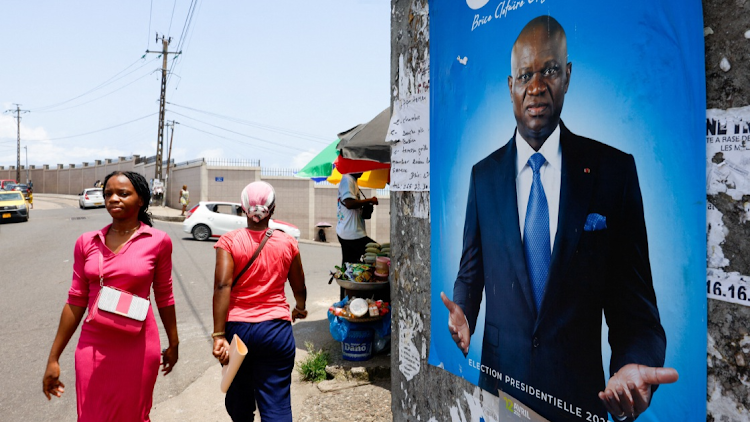Voters in oil-rich Gabon cast their ballots on Saturday in a historic presidential election—marking the first vote since a military coup ousted the Bongo political dynasty in 2023. The election is widely viewed as an effort by the country’s transitional leader, General Brice Clotaire Oligui Nguema, to legitimize his grip on power and extend his leadership for a full seven-year term.
Over 920,000 registered voters, including more than 28,000 overseas, were eligible to vote at more than 3,000 polling stations across the country. Despite Gabon’s vast petroleum wealth, nearly one-third of its 2.3 million citizens live in poverty, adding to tensions surrounding the outcome of the election.
From Coup Leader to Presidential Candidate
Gen. Oligui Nguema, 50, seized power nearly two years ago in a dramatic military takeover that ended over five decades of Bongo family rule. Then-president Ali Bongo Ondimba was placed under house arrest following the coup, though later released due to health concerns. His wife and son were charged with corruption and embezzlement, while Bongo himself faced no charges.
Promising to “return power to civilians,” Oligui initially assumed the role of interim president but later declared his candidacy following the adoption of a new electoral code, controversially allowing active military officers to run for political office.
His campaign, run under the slogan “We Build Together,” emphasizes national unity and economic progress. He has credited himself with fast-tracking infrastructure projects during his 19-month rule and vows to do more if given a full term under the country’s new constitution, which extends the presidential term to seven years and limits it to two terms.
A Divided Field
The presidential race features eight candidates, but Oligui’s main challenger is Alain Claude Bilie-By-Nze, former Prime Minister under the Bongo regime. Bilie-By-Nze has positioned himself as the face of a new era, calling for “political, diplomatic, and economic independence” and a break from Gabon’s colonial past and military politics.
“The 2023 coup was just a continuation of the old regime under a new name,” said voter Jonas Obiang, speaking from Libreville’s Damas district. “General Oligui is surrounded by the same people who looted our country.”
Others expressed disappointment with the transitional military government.
“They promised reforms, but delivered enrichment for themselves,” said Antoine Nkili, a 27-year-old unemployed law graduate. “I’m not voting for the military.”
However, Oligui retains strong grassroots support. Jean Bie, 57, who works in construction, said the military leadership had accomplished more in 19 months than the previous regime.
“He’s delivered on roads, schools, and hospitals. I’m voting for him to finish what he started,” Bie said.
International Attention and Tensions with France
Gabon remains one of the few former French colonies to retain a strong military presence from Paris, with more than 300 French troops stationed in the country. While Oligui has made no move to expel French forces, his opponent Bilie-By-Nze has said “no topic is off-limits” in reviewing the bilateral relationship.
The question of foreign influence and sovereignty remains a sensitive topic, particularly as countries across West and Central Africa pivot away from traditional allies like France in favor of newer partners such as Russia and China.
Earlier this week, Oligui’s campaign spokesperson Laurence Ndong dismissed allegations of vote manipulation, promising “Gabon’s first free and transparent election.”
But with concerns of electoral bias, military entrenchment, and lingering socio-economic hardship, many believe the outcome of this election could determine whether Gabon moves toward genuine civilian democracy or cements a new military-led status quo.
Results are expected in the coming days.



